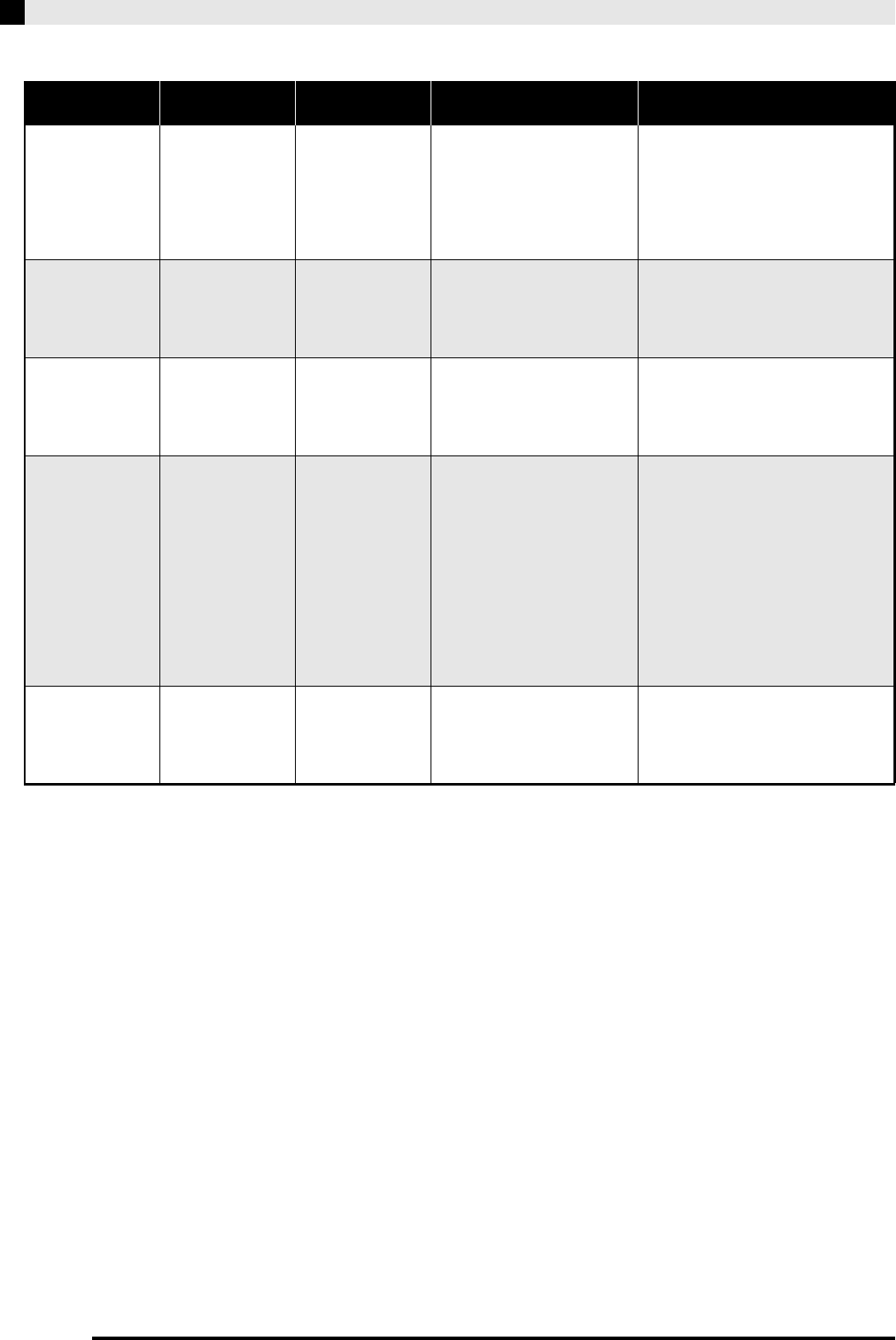
E-22
Configuring Settings with the Keyboard
■ Keyboard
Parameter Settings
Operation Type
(page E-19)
Description Remarks
3
Keyboard key
(Transpose)
–12 to 0 to 12
Default: 0
B Raises or lowers the tuning of
the digital piano in semitone
steps.
• The transpose setting cannot be
configured while Music Library
playback is in progress or while in
the Duet Mode.
• Raising the key of the digital piano
can cause notes the highest part of
the range to become distorted.
4
Keyboard tuning
(Tuning)
–99 to 0 to 99
Default: 0
B Raises or lowers the overall
pitch of the digital piano in 1-
cent steps (100 cents = 1
semitone) from the standard
pitch of A4 = 440 Hz.
• The pitch setting cannot be changed
while playback of a Music Library
tune is in progress.
5
Octave shift –2 to 0 to 2
Default: 0
B Change the range of the
keyboard in octave units.
• You can configure octave shift
settings for the main tone part and
layered tone part.
• You cannot configure octave shift
settings for split tone parts.
6
7
8
Temperament
(TEMPERAMENT)
Temperament
select
(TEMPERAMENT
SELECT)
Temperament
Base note
(BASE NOTE)
Temperament:
00 to 16
Base note:
–, +, 0 to 9 (C to B)
Defaults:
Temperament: 00
(Equal Temperament)
Base note
: C
Hold down
FUNCTION as you
press each of the
following keyboard
keys.
1. TEMPERAMENT
(
6
)
2. TEMPERAMENT
SELECT (
7
)
3. BASE NOTE (
8
)
You can change the scale
(tuning system) of the
keyboard from standard equal
temperament to another tuning
that is more suitable for
playing Indian music, Arabic
music, classical pieces, etc.
<Temperaments>
00: Equal / 01: Pure Major / 02: Pure
Minor / 03: Pythagorean /
04: Kirnberger 3 / 05: Werckmeister /
06: Mean-Tone / 07: Rast / 08: Bayati /
09: Hijaz / 10: Saba / 11: Dashti /
12: Chahargah / 13: Segah /
14: Gurjari Todi / 15: Chandrakauns /
16: Charukeshi
<Base notes>
–: C / +: C
#
/ 0: D / 1: E
b
/ 2: E / 3: F /
4: F
#
/ 5: G / 6: A
b
/ 7: A / 8: B
b
/ 9: B
bo
Touch response
(TOUCH
RESPONSE)
Off (OFF), 1 to 3
Default: 2
A Specifies the relative touch of
the keyboard keys.
Setting a smaller value causes
lighter touch to produce more
powerful sound.


















